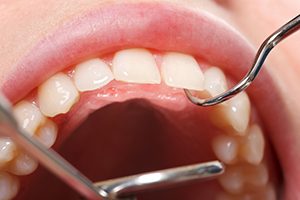 With more than half of American adults affected by gum disease, it’s important to know if you’re in one of the at-risk groups. Some factors are beyond our control, but others can be controlled, and simple things such as better nutrition and behavioral changes can go a long way toward improving oral health and preventing gum disease.
With more than half of American adults affected by gum disease, it’s important to know if you’re in one of the at-risk groups. Some factors are beyond our control, but others can be controlled, and simple things such as better nutrition and behavioral changes can go a long way toward improving oral health and preventing gum disease.
Gum Disease Risk Factors
- Age – People over 65 years have the highest rates of periodontal disease, with over 70% afflicted. Seniors with gum disease also have higher rates of other chronic illnesses.
- Smoking and Tobacco Use is perhaps the most significant risk factor for periodontal disease (as well as other serious health problems). If you smoke, the best thing you can do for your health is quit!
- Stress – High levels of stress can decrease the effectiveness of the immune system, making it harder for the body to fight off infections.
- Clenching or Grinding of teeth (also known as bruxism) creates an excessive force that can damage and degrade surrounding tissue and cause irritation.
- Medications such as anti-depressants, oral contraceptives, and others can have adverse effects on periodontal health. Be sure to read all the labels on your medication for possible side-effects and talk with your doctor or dentist if you notice any changes.
How to Avoid Gum Disease
Gum disease has been linked to an increased risk for heart disease as well as other conditions like rheumatoid arthritis, respiratory infections, and low-birth-weight and premature births. The best way to prevent these adverse effects is to:
- Floss regularly and brush properly
- Avoid sugary snacks
- Increase fresh fruits and vegetables in your diet
- Carry sugarless gum for when you can’t brush
- Visit your dentist every six months for a professional cleaning and check-up!

